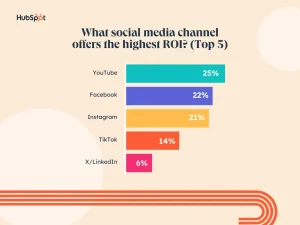
Constant technological advancements in computing power and large-data processing like graphics rendering have allowed people to create larger virtual worlds. Furthermore, with 5G networks quickly emerging around the world, accessing these worlds from smartphones has never been simpler.
Education: Virtual reality can make lessons more engaging and absorbing for their students, such as showing diagrams in the Metaverse or taking virtual tours of museum exhibits.
The Future of Work
As the internet continues to evolve and form into a metaverse, various services including VR/AR/MR headsets, blockchain technology and non-fungible tokens (NFTs) have already formed the basis of an immersive online experience.
As the metaverse becomes more pervasive, businesses and consumers will seek new uses for it. A 2021 survey indicated that its most commonly mentioned benefit was helping those with physical limitations move about more freely by creating virtual worlds where they could move freely.
The technologies driving the metaverse are rapidly advancing. 5G broadband network speeds will soon be capable of supporting large upload/download demands, while new hardware devices like AR headsets are expected to become affordable and accessible. Edge computing will allow data processing locally without limited bandwidth or latency issues preventing its processing – providing privacy and security concerns with which a metaverse could present themselves to be resolved more easily.
The Future of Education
Students learning in the metaverse can take advantage of immersive virtual environments equipped with personalized learning tools. Furthermore, they can interact with classmates and teachers regardless of physical location in real-time.
Emergence of the metaverse has been hastened by technological developments. Edge computing enables data processing locally instead of in the cloud, alleviating latency and bandwidth issues; VR, AR and MR headsets have become lighter and more comfortable over time; etc.
People are becoming more willing to use these technologies, and as the metaverse evolves it will provide brands with new ways of connecting with consumers and driving brand excitement and goodwill. Furthermore, this epoch-making experience may create unique customer loyalty-building experiences – which explains why many businesses are already exploring metaverse technologies such as AR/VR/Blockchain tokens etc as a potential way of engaging customers within this new epoch-making experience. Gaming platforms like Roblox are even taking steps towards making this connection to customers within this new epoch-making environment.
The Future of Entertainment
Entertainment is one of the core uses for the metaverse and is likely to attract younger generations, who will help drive its development. Roblox gaming metaverse allows users to explore immersive spaces and create virtual worlds they can engage with; Fortnite, Pokemon Go and Minecraft combine real settings with virtual characters and images for truly immersive experiences.
Top artists and musicians are also exploring metaverse platforms. Ariana Grande held her virtual concert series for Fortnite in 2021, while other artists are creating digital representations of themselves that can be accessed by others.
Industrial companies are taking advantage of metaverse technology to improve teamwork and collaboration among employees. Instead of relying on whiteboards, sticky notes, or large screen monitors as means for ideation sessions, teams can go into virtual versions of factories or construction sites to work collaboratively and identify issues more easily. Furthermore, companies may even develop and monetize their own metaverse spaces for employees or customers to use.
The Future of Shopping
As the metaverse expands, consumers will engage with it in new ways, which may revolutionise end-to-end customer journeys and provide unforgettable experiences.
Real estate companies could allow consumers to virtually view homes and apartments before buying. Virtual guides would also provide tourists with information as they explore a city or resort, noted Nguyen.
The rise of the metaverse offers brands new avenues for reaching consumers. Millennials and Gen Z already use virtual games, social media, and augmented reality to connect with each other.
While there remains considerable confusion surrounding the metaverse, one thing is certain. First and foremost is its permanence; technology will only become more prevalent over time. Therefore, businesses need to familiarize themselves with it and start exploring. Furthermore, avoid categorizing metaverse as one single concept which limits creatives’ imaginations and imagination.








